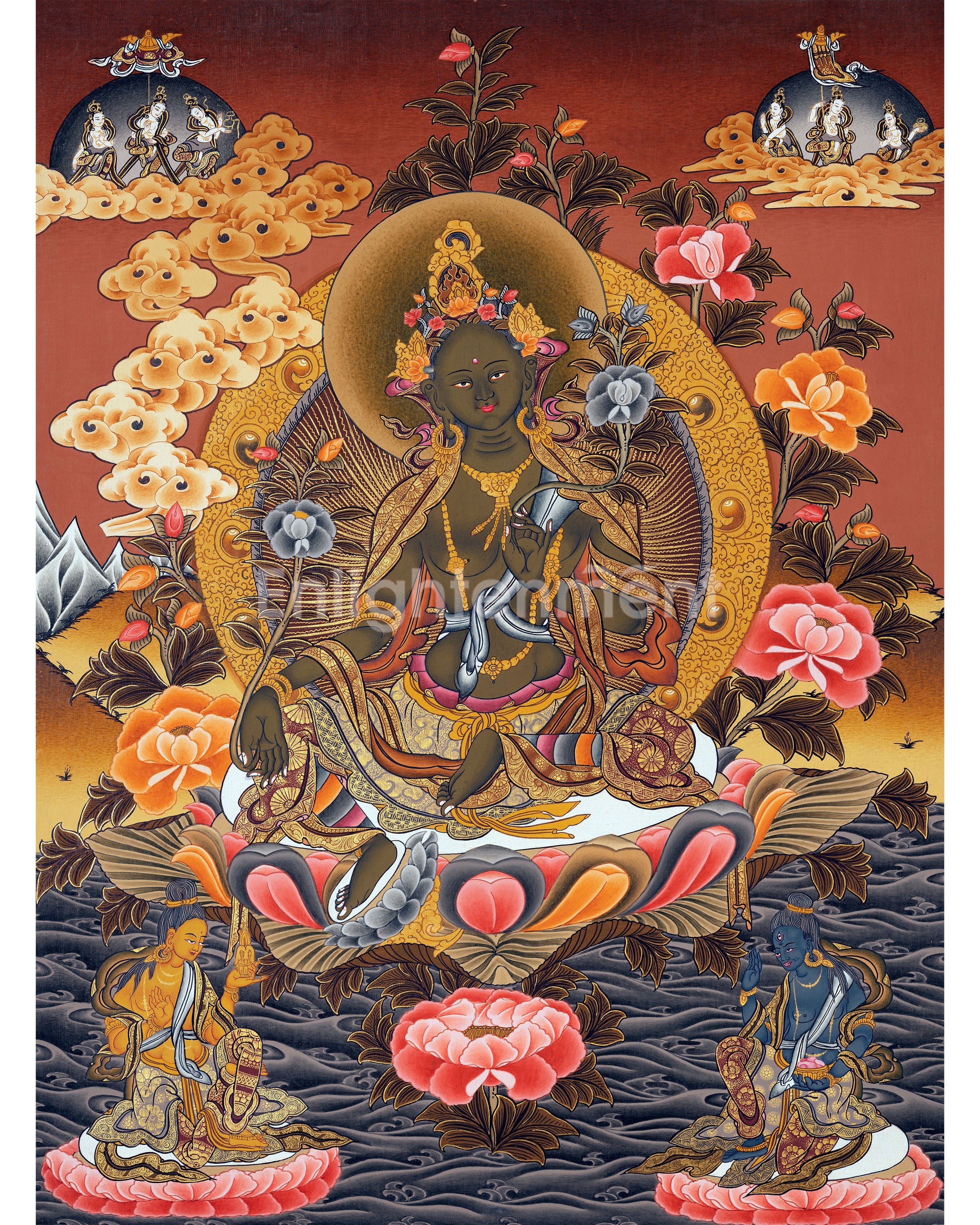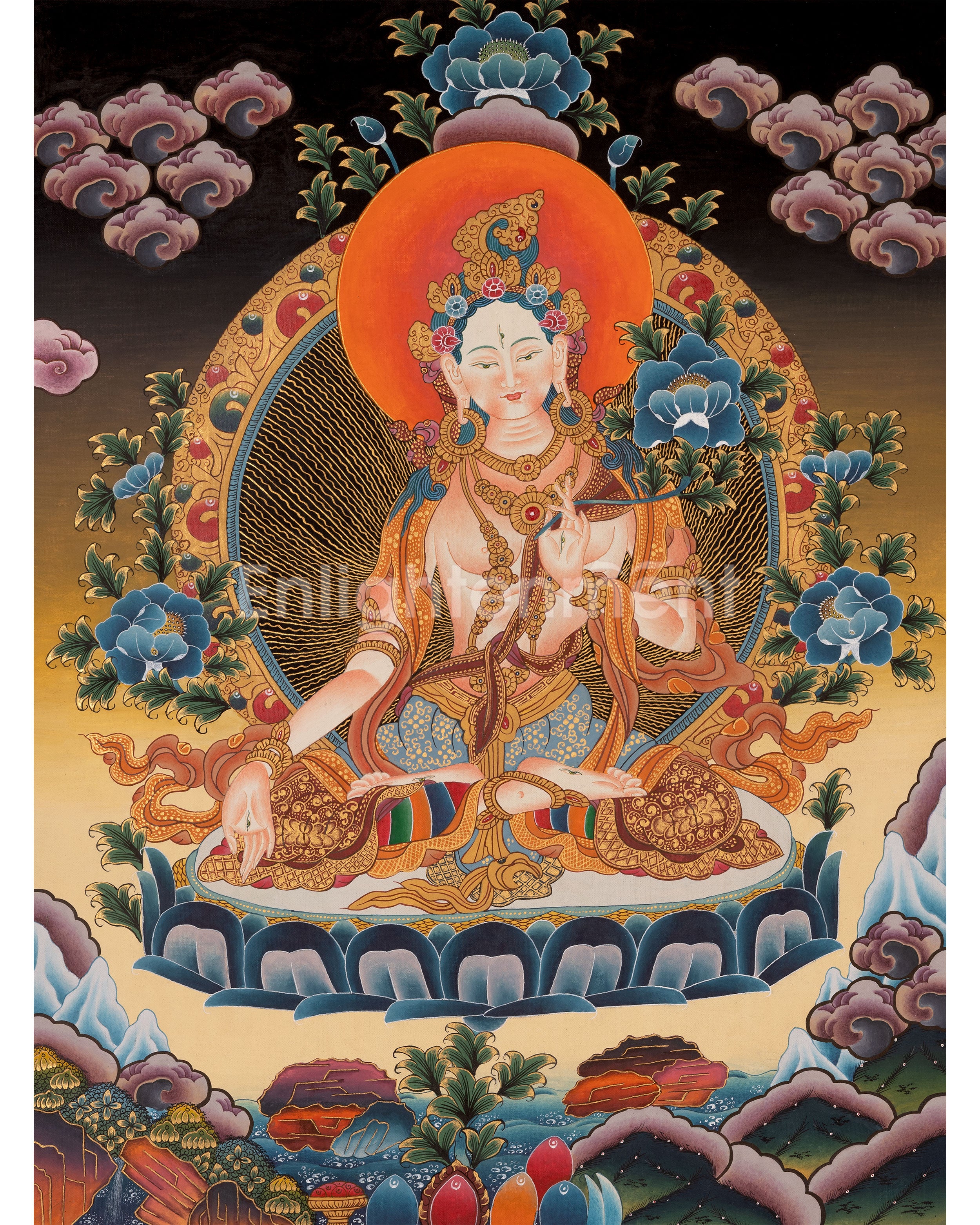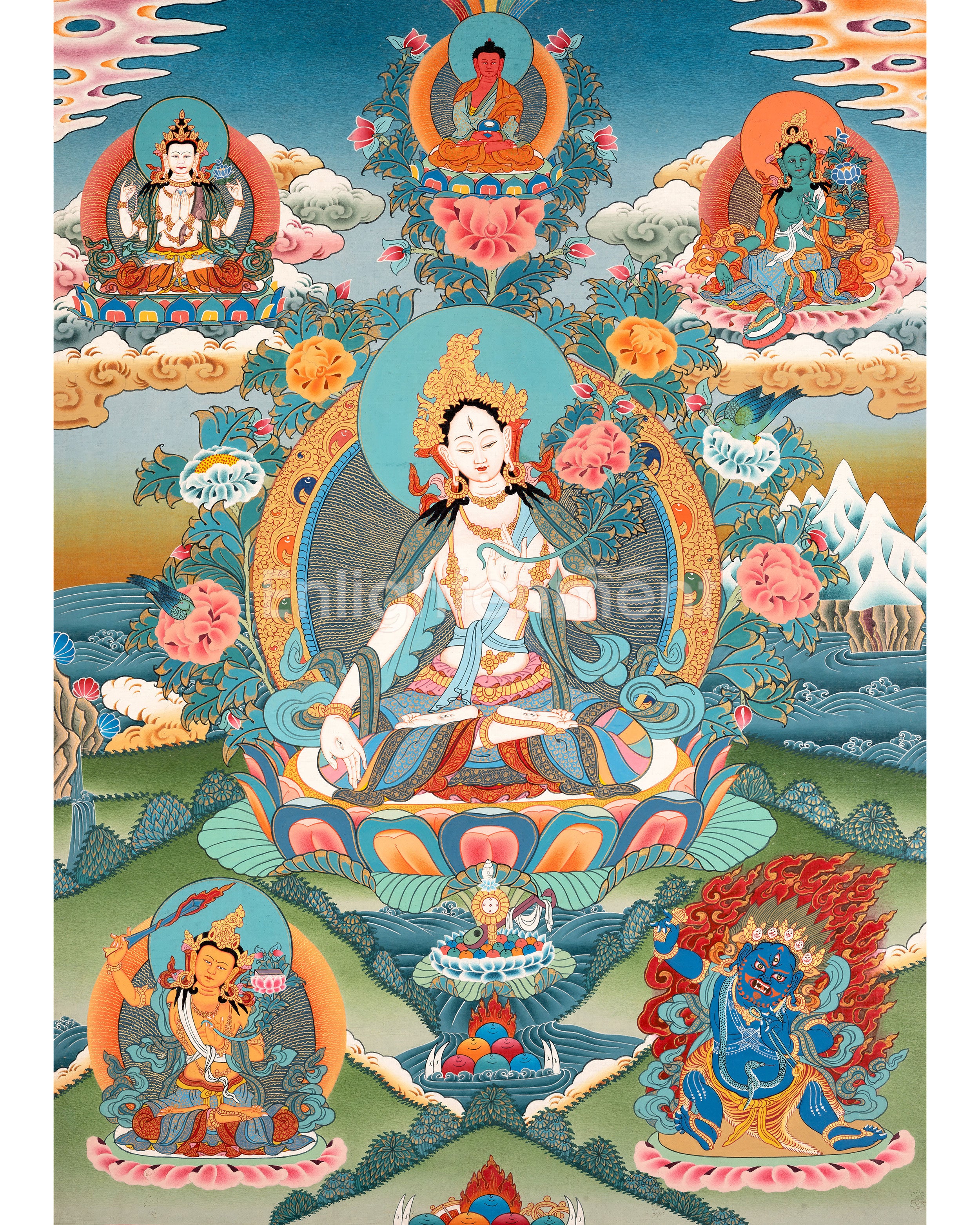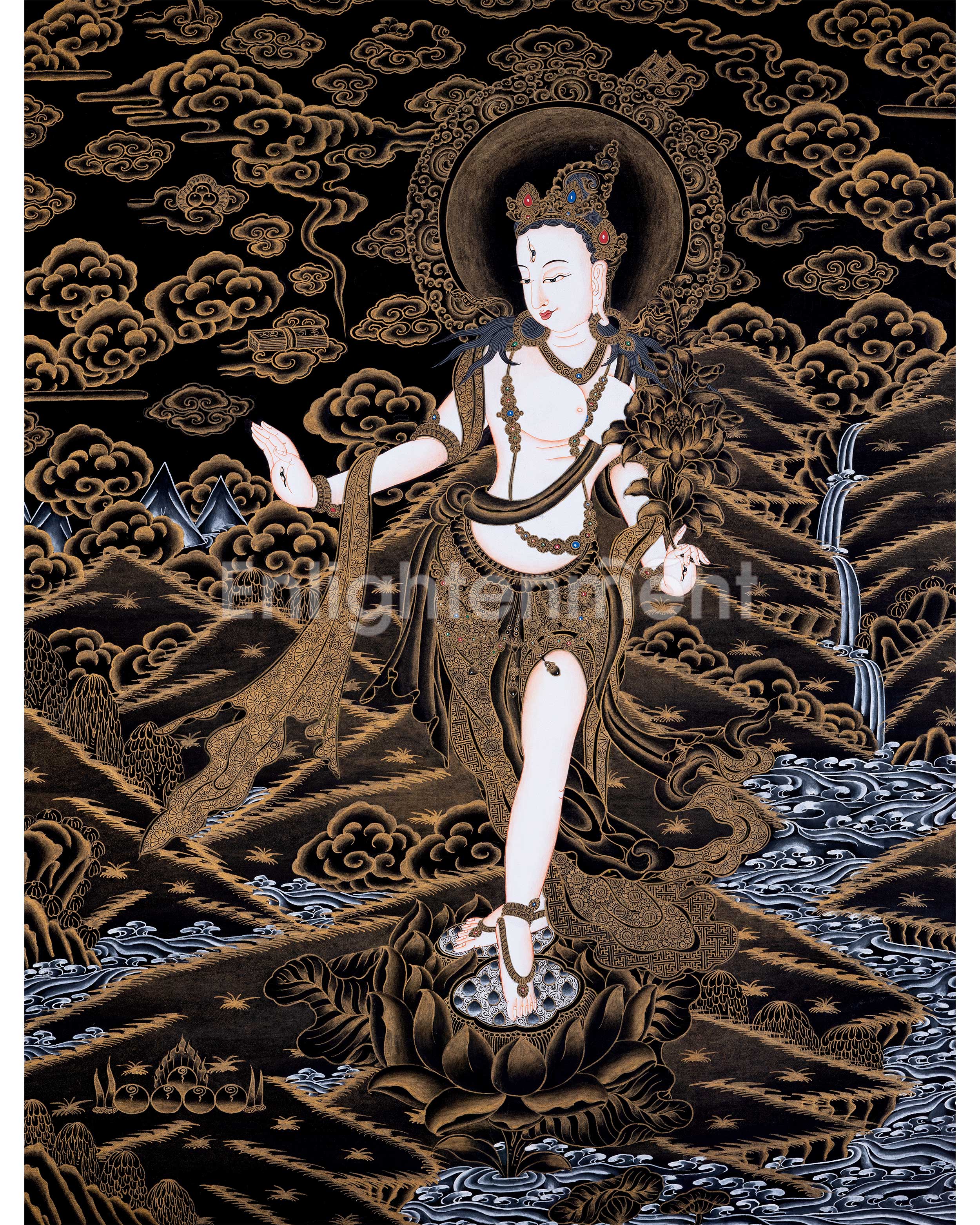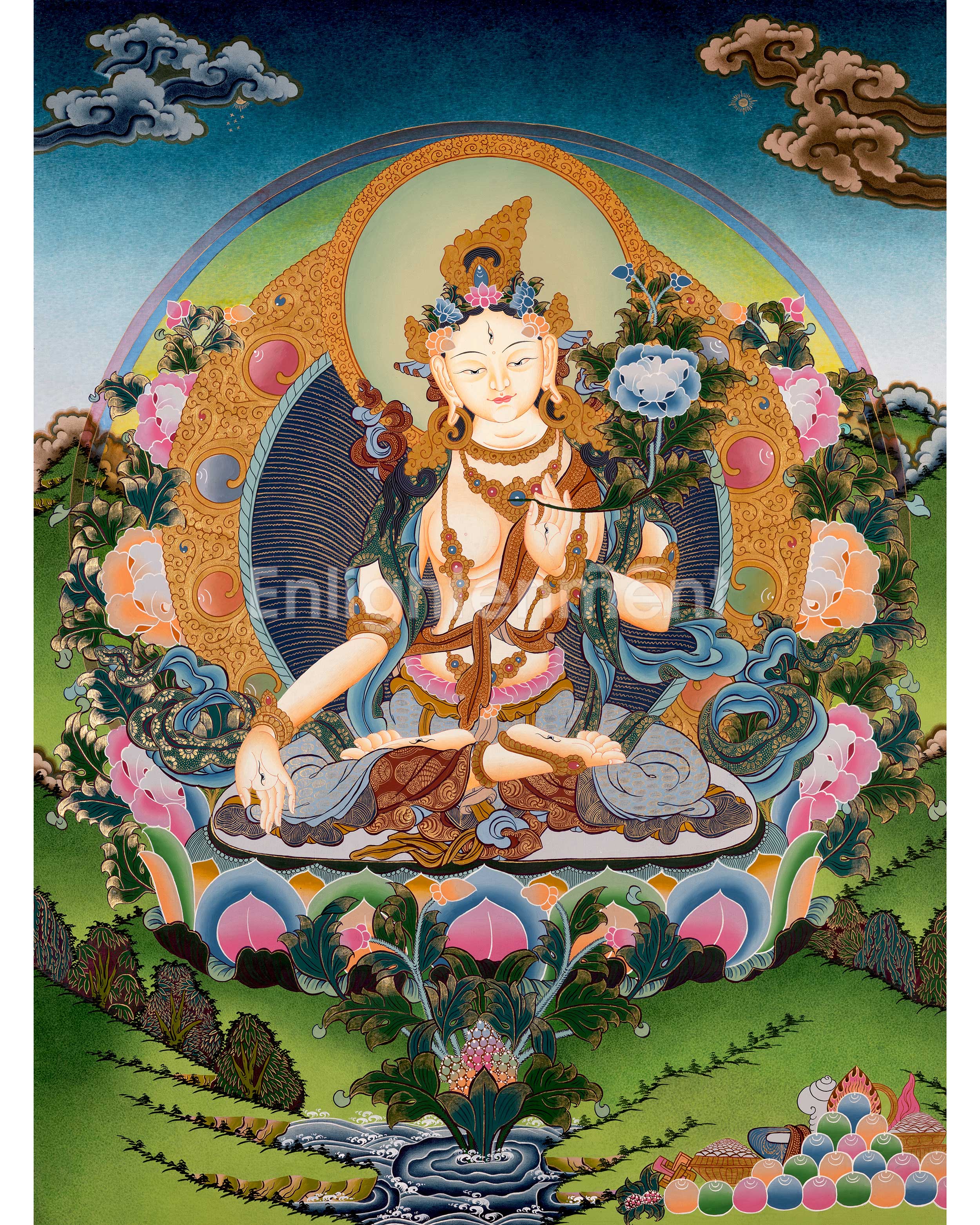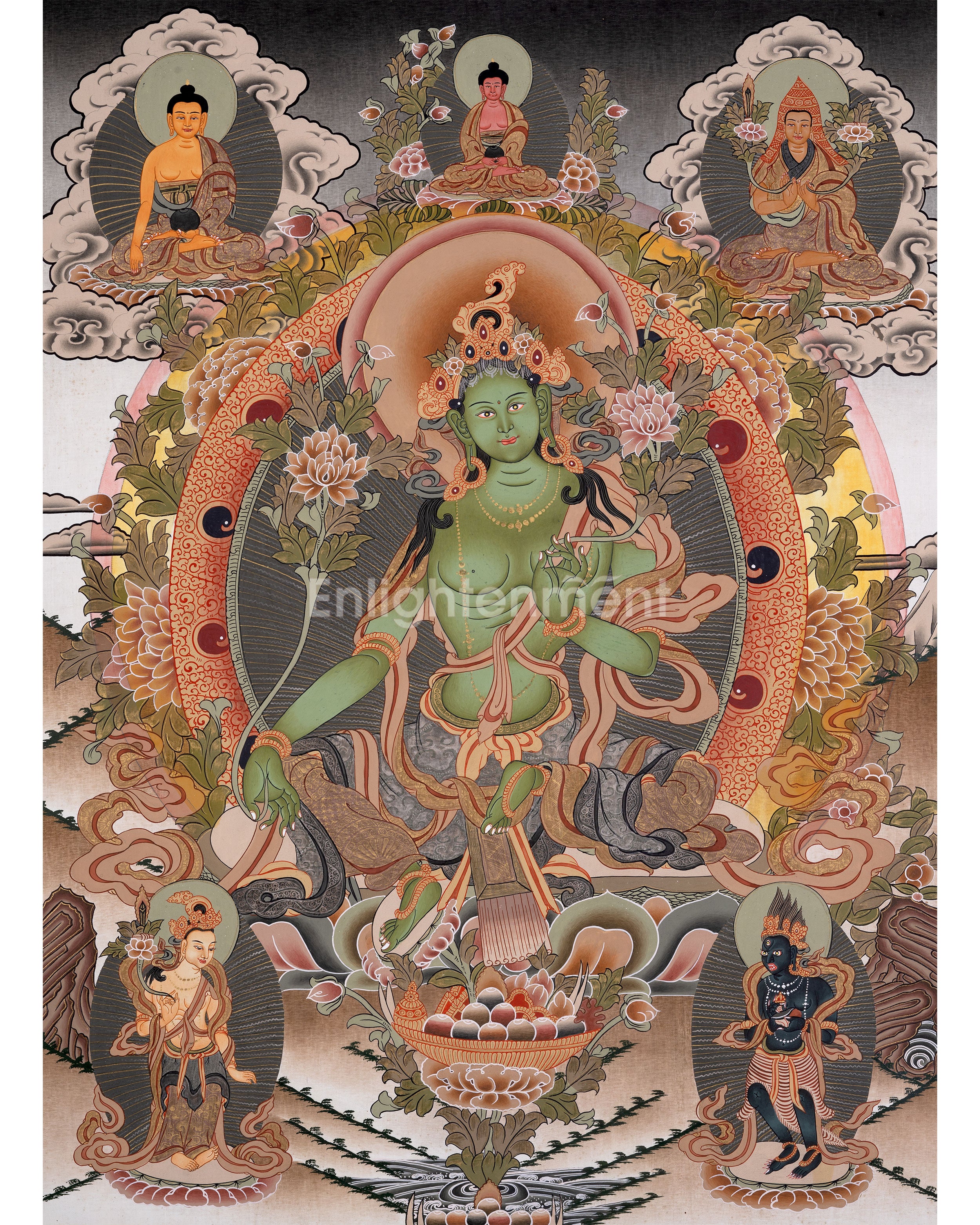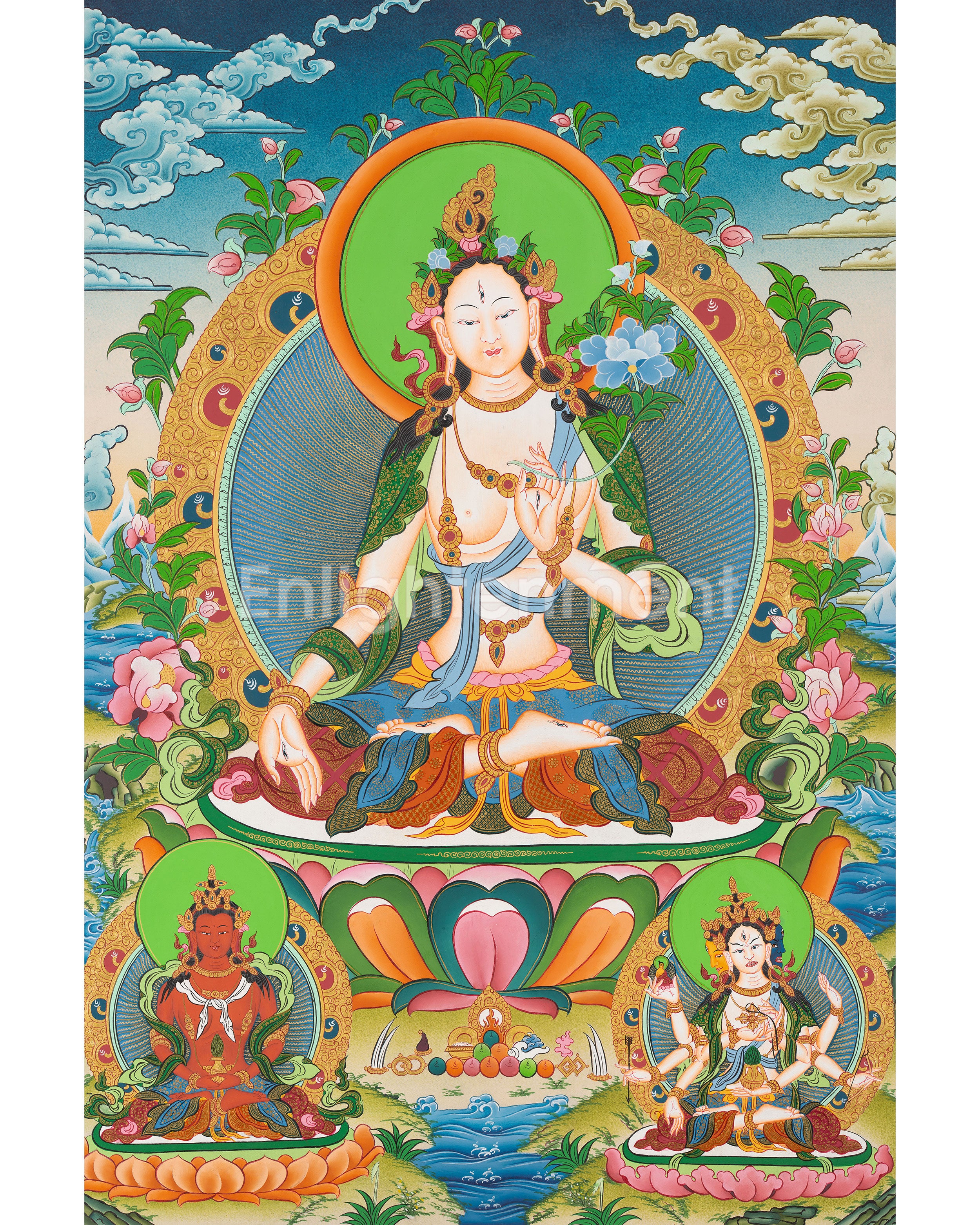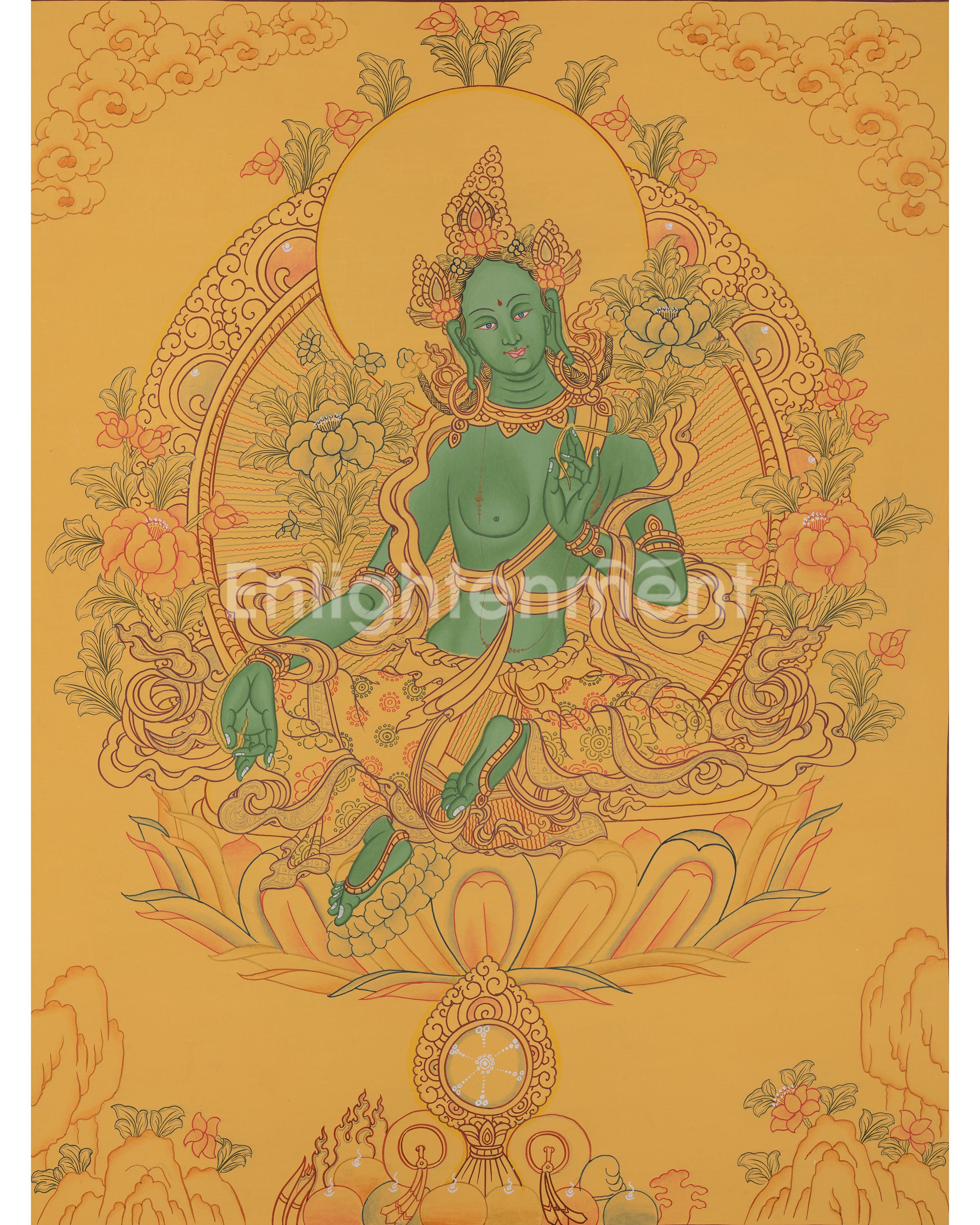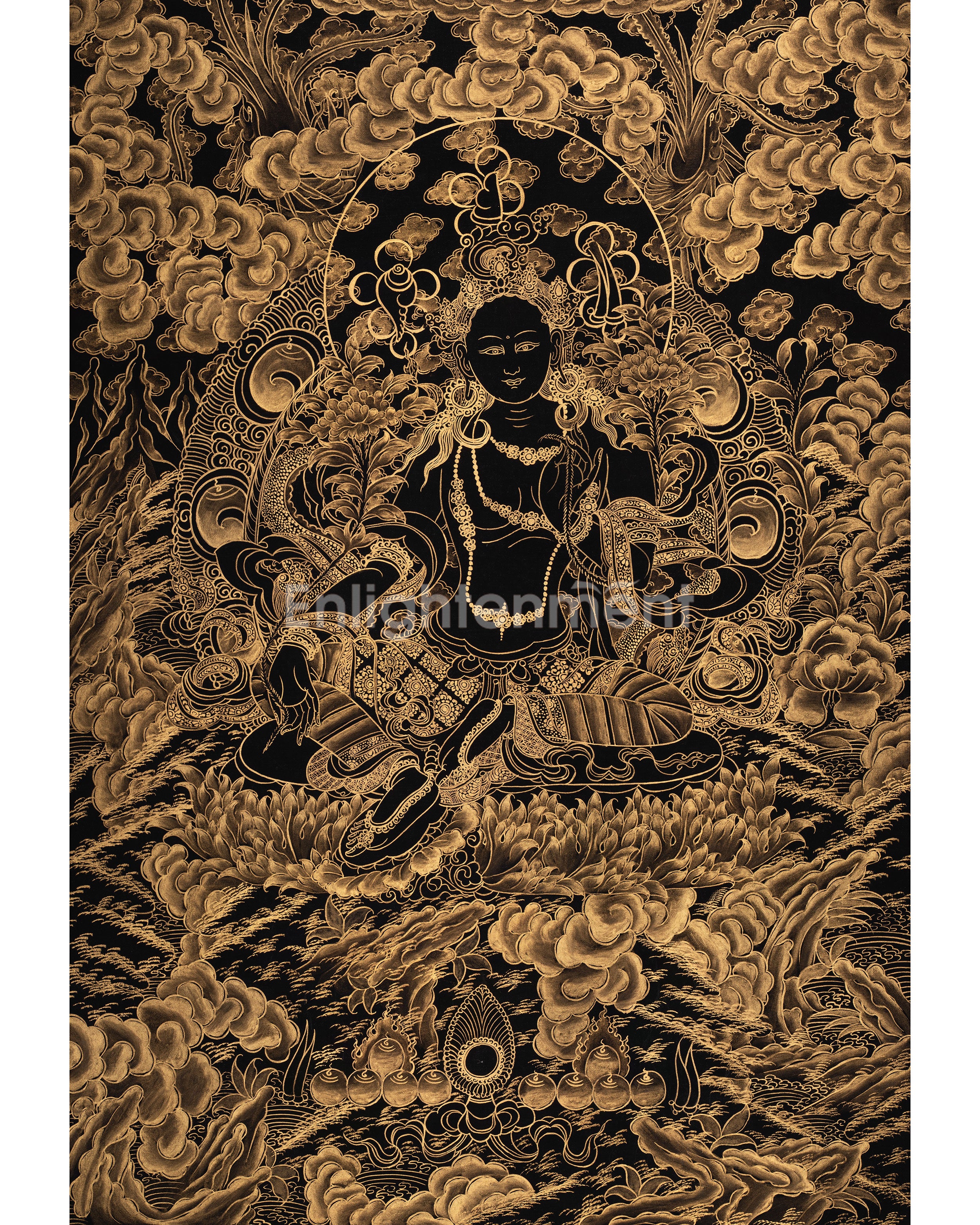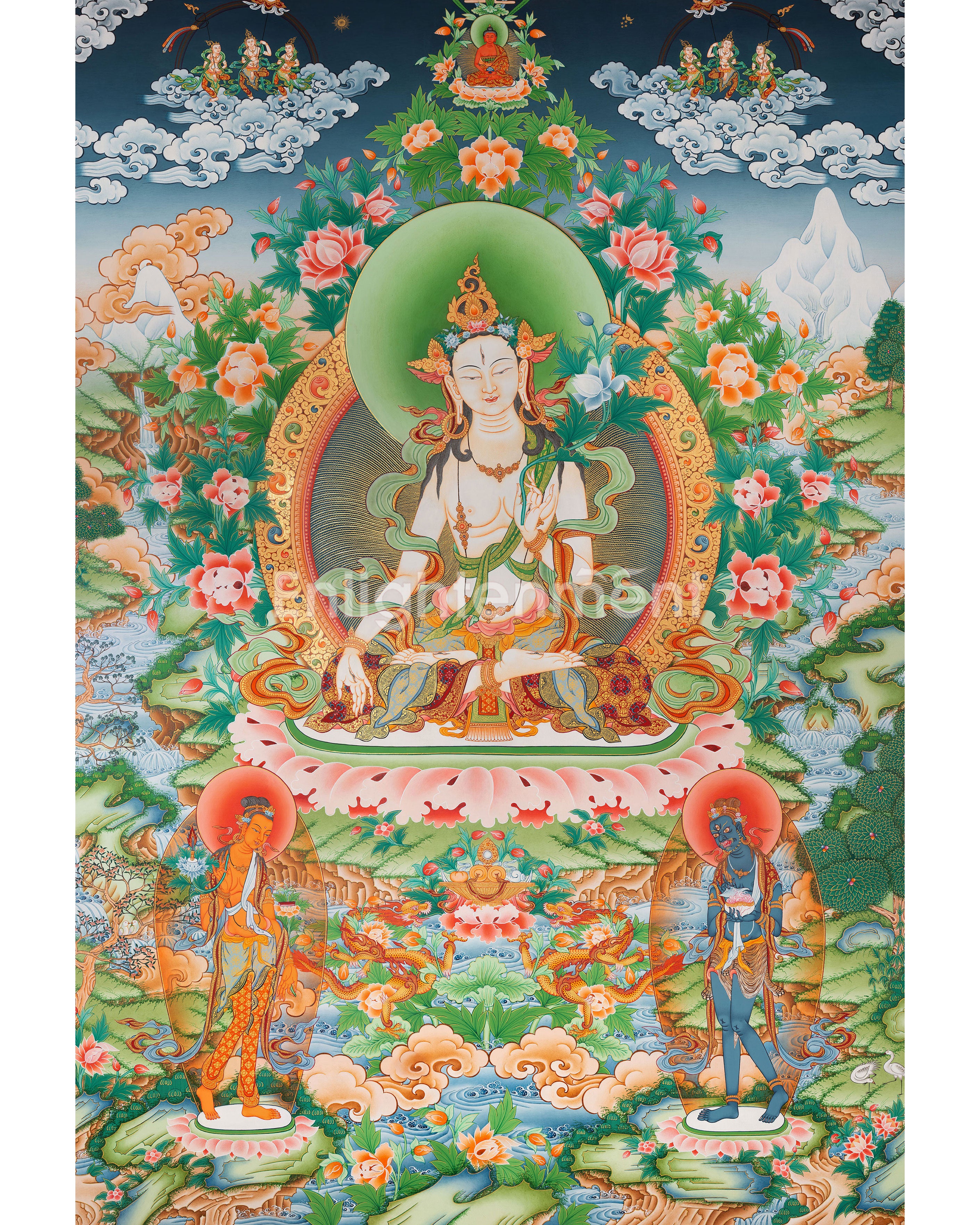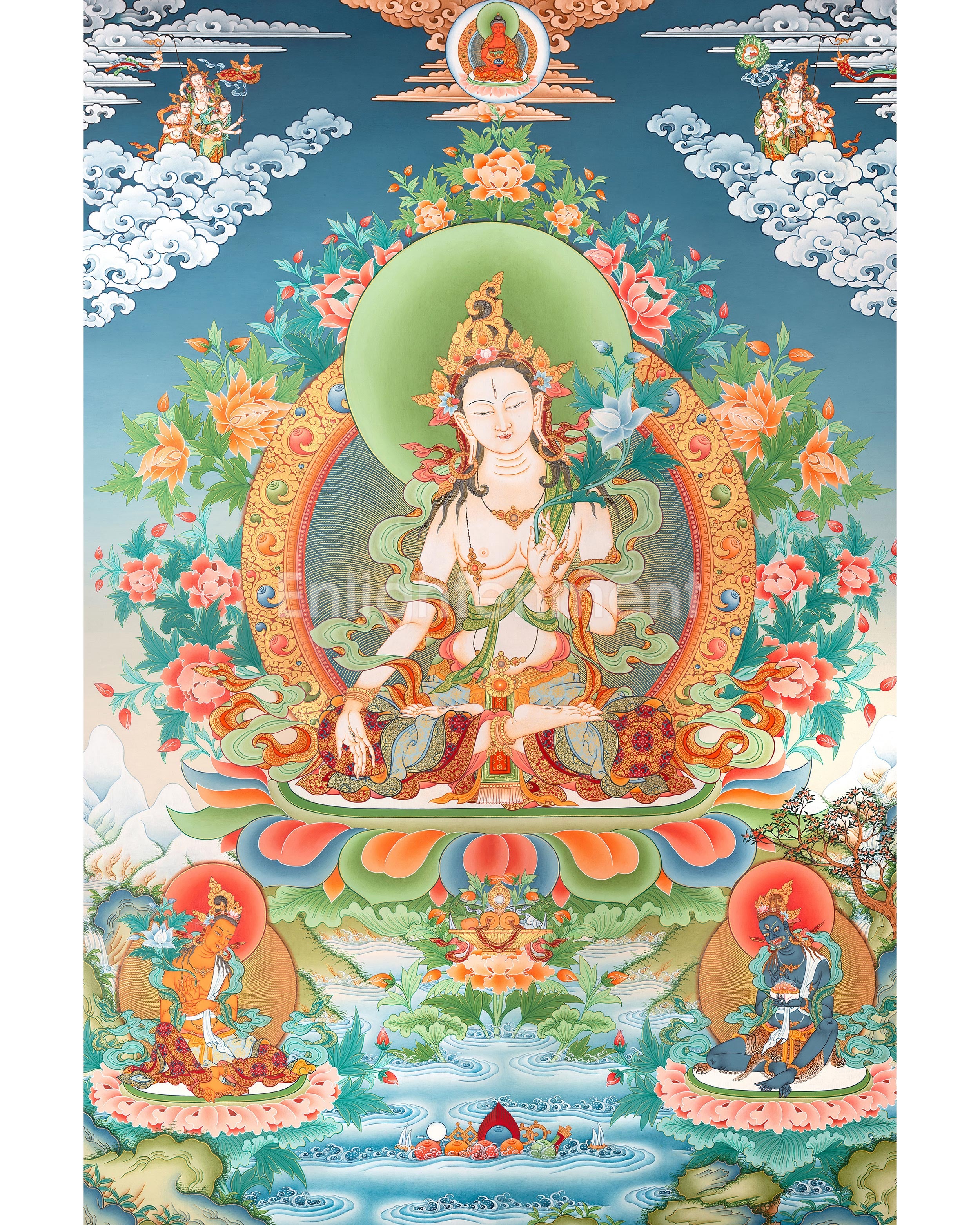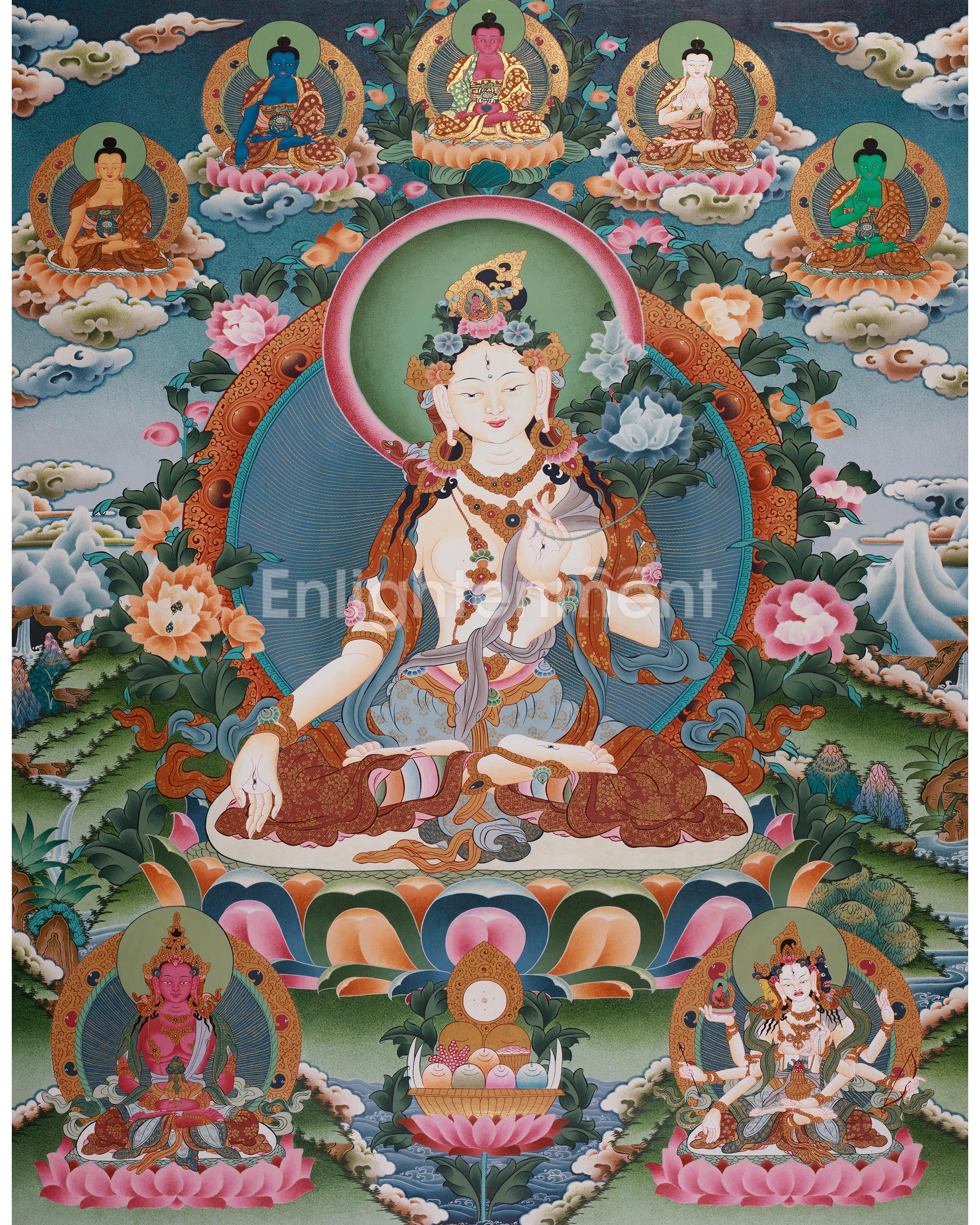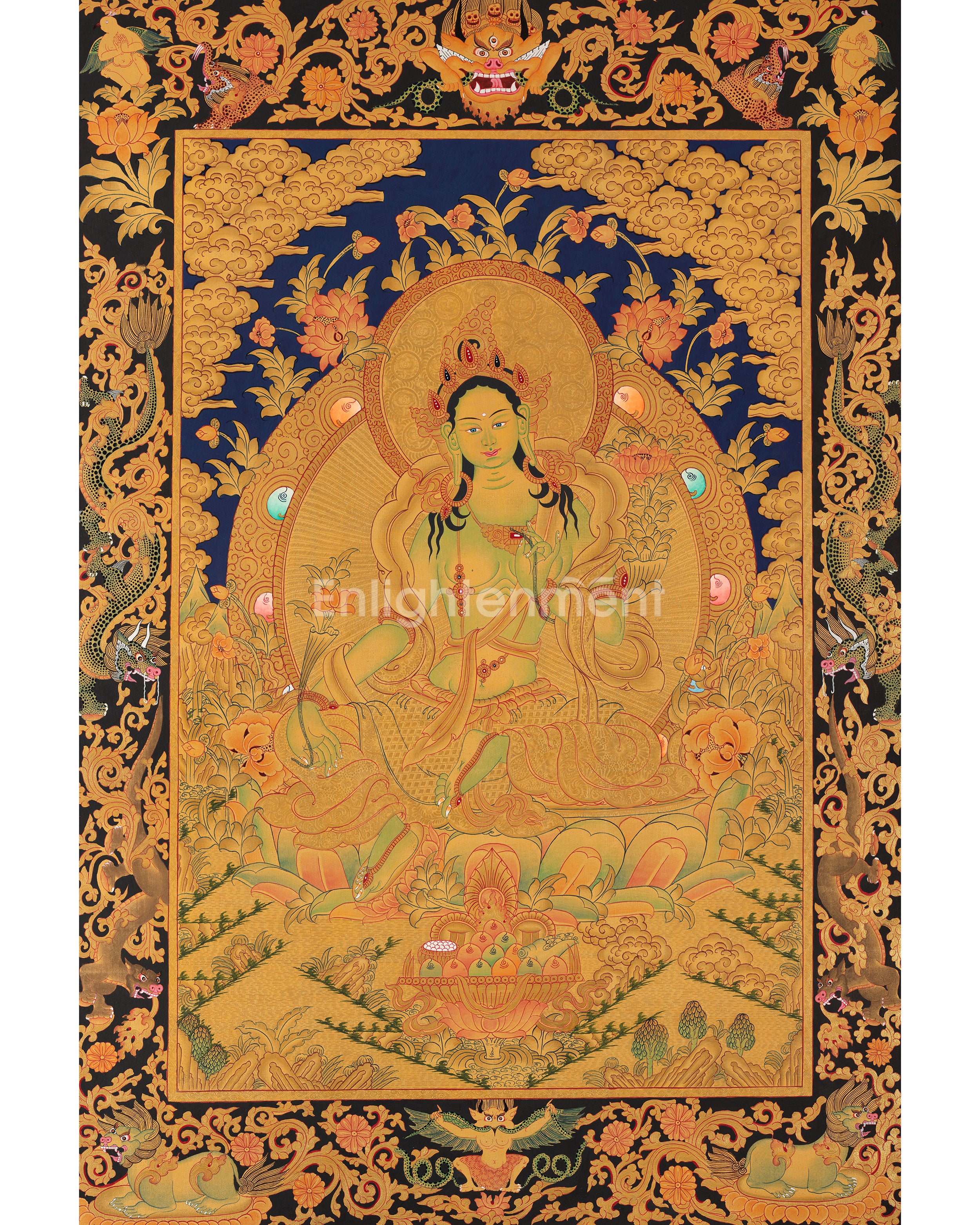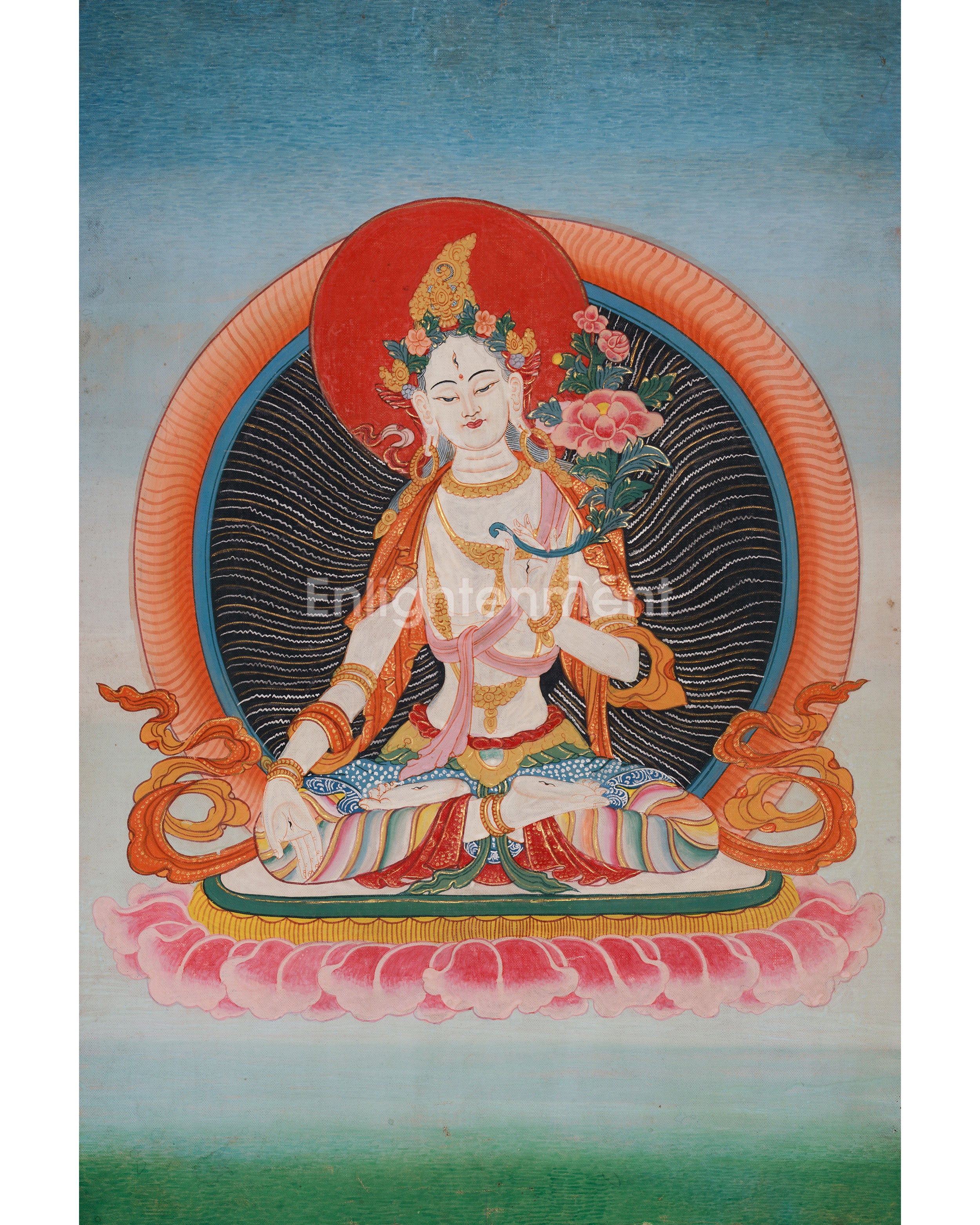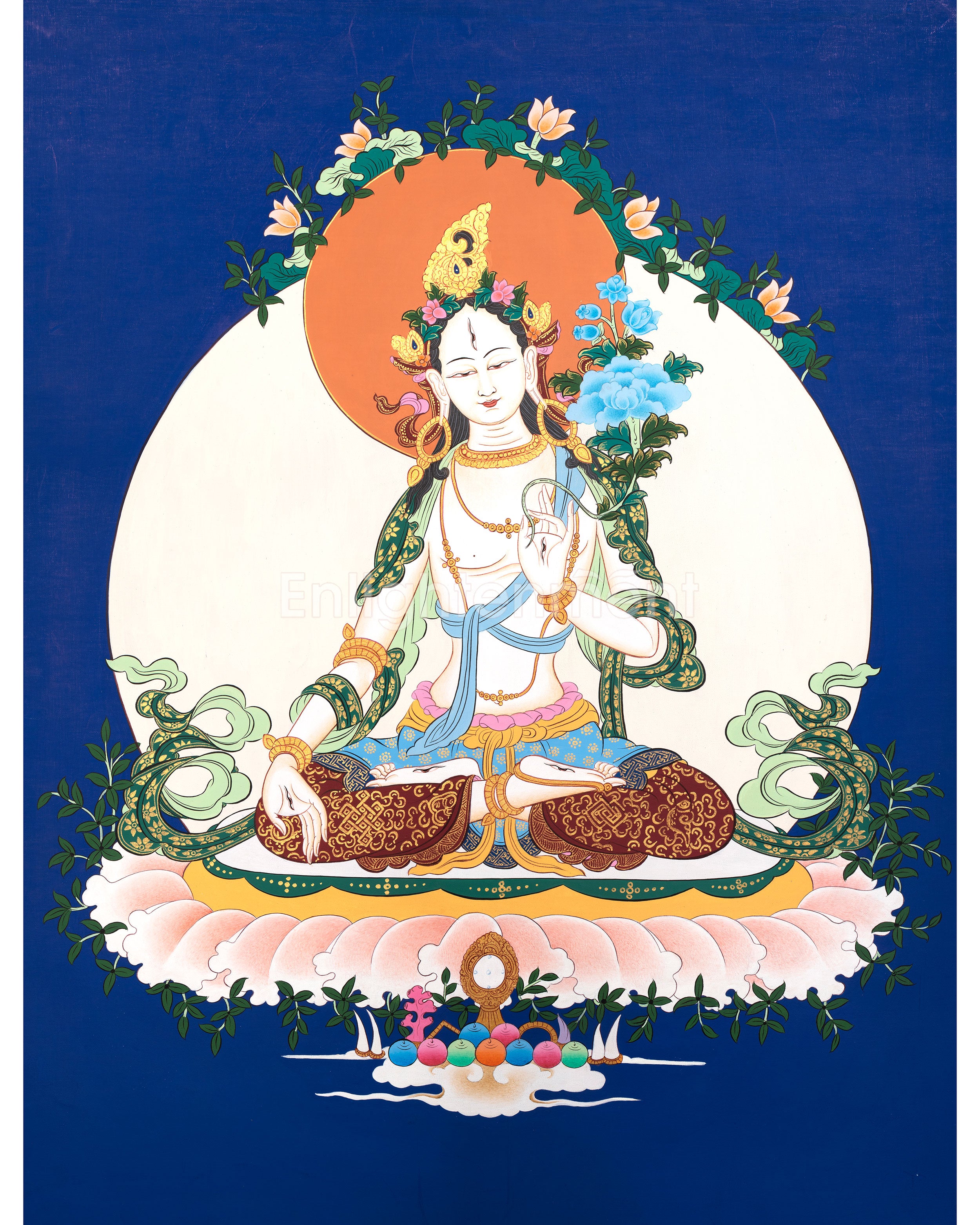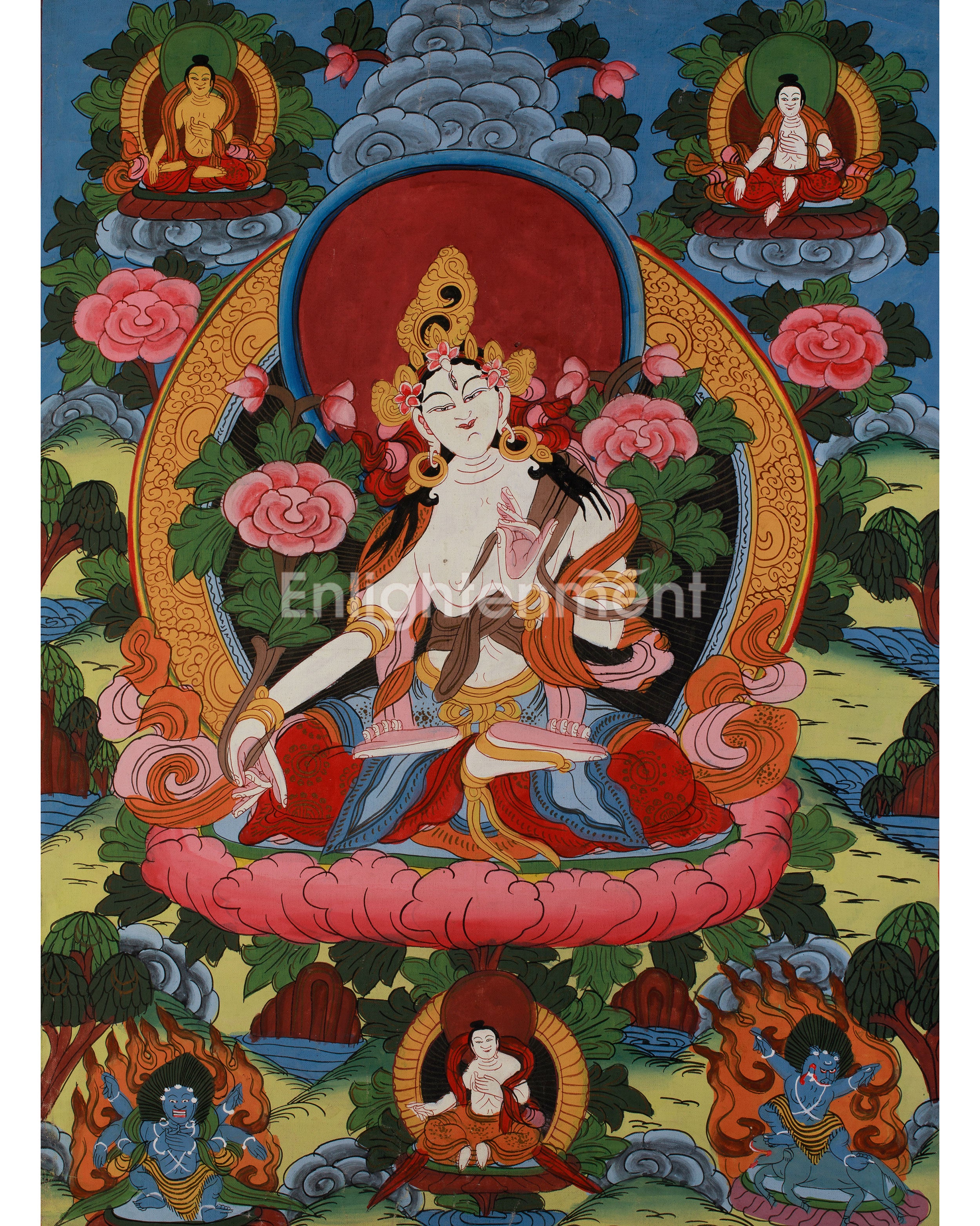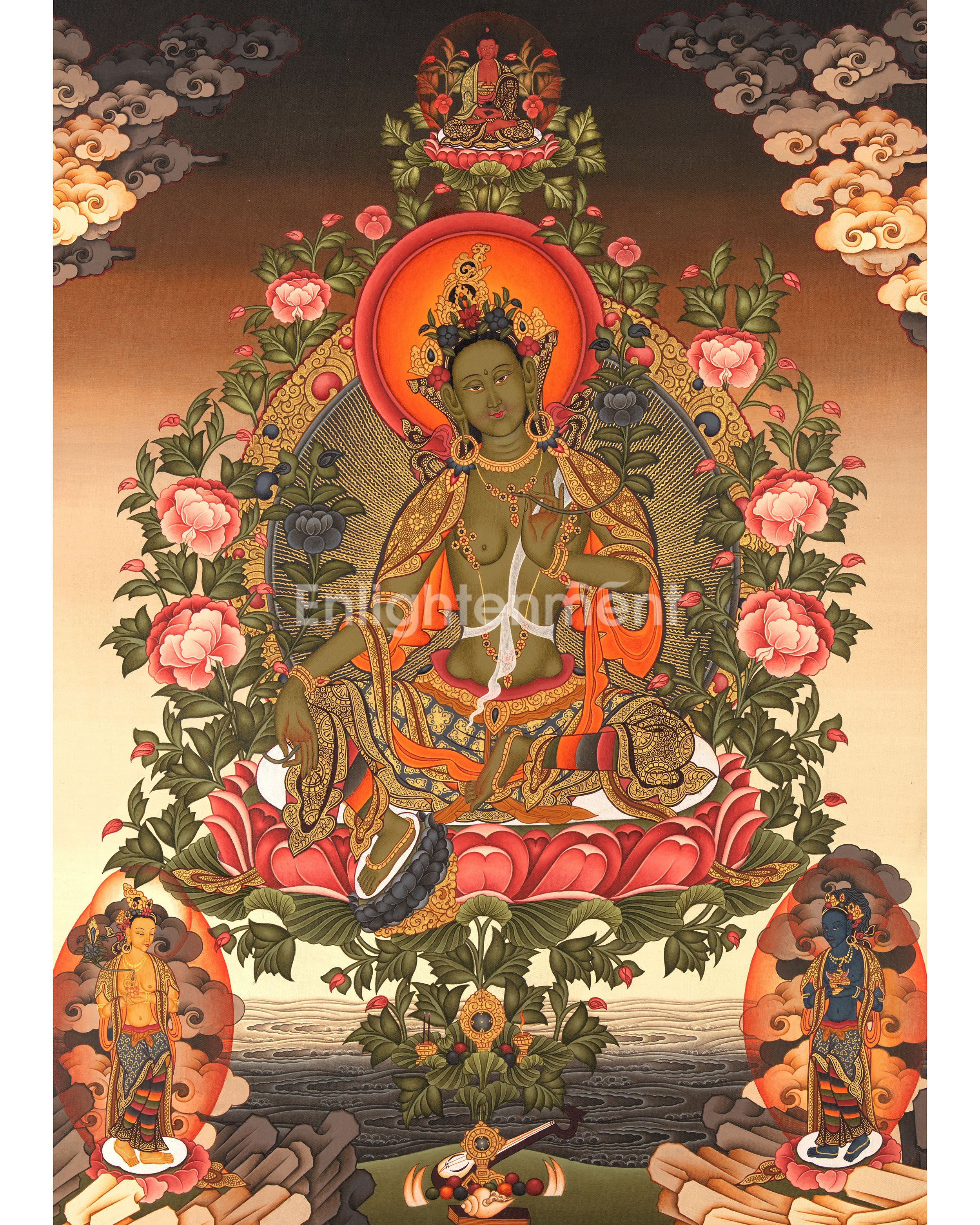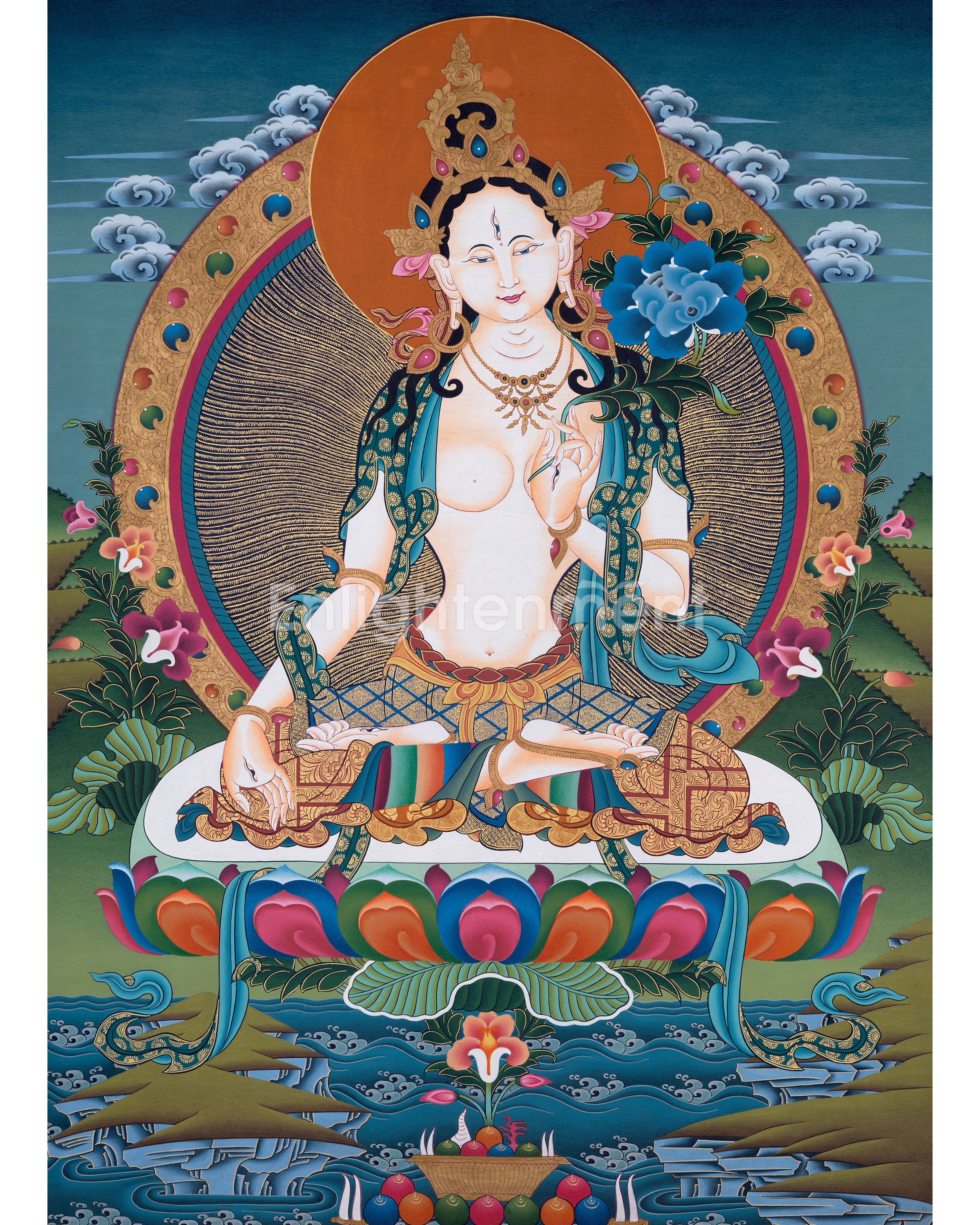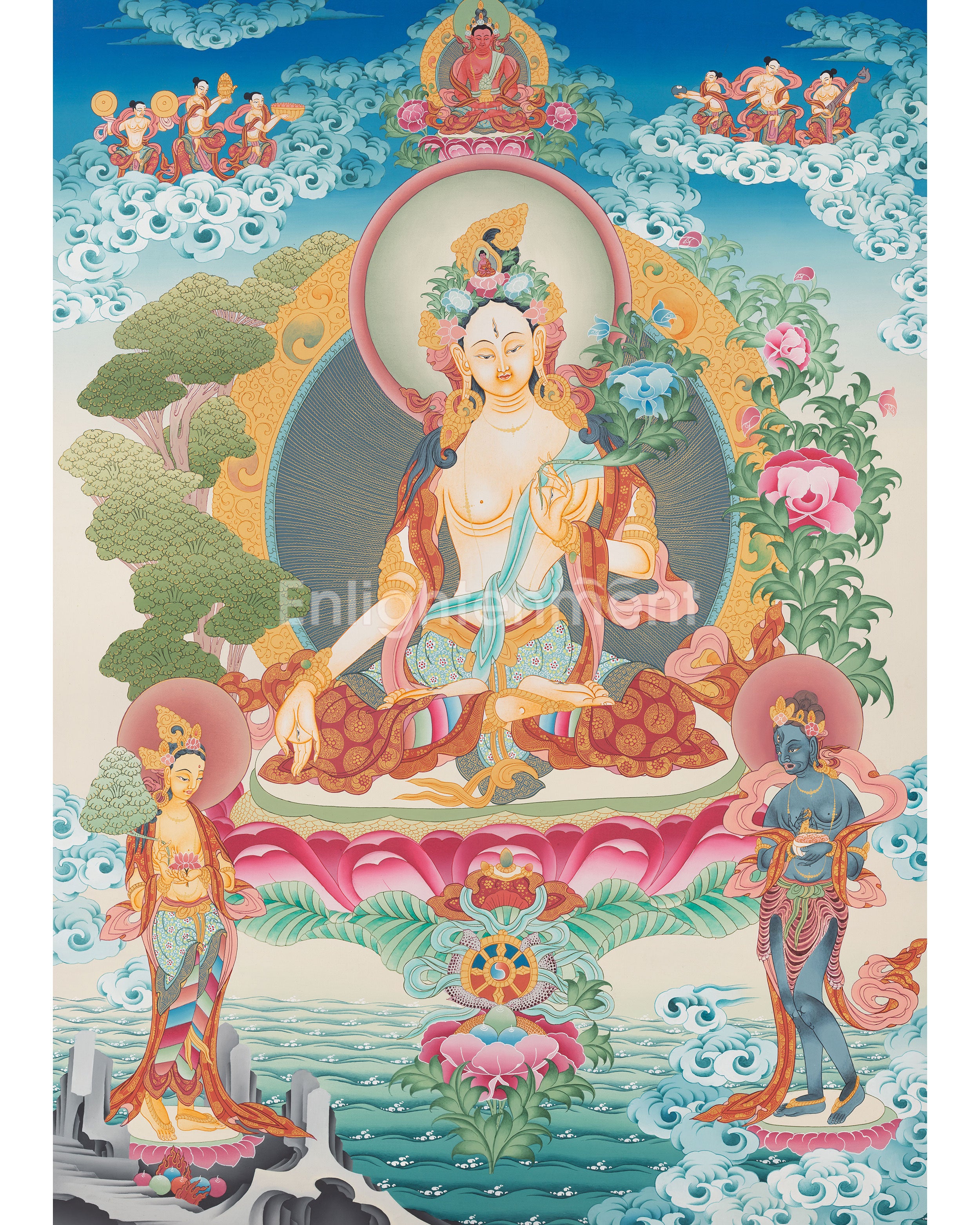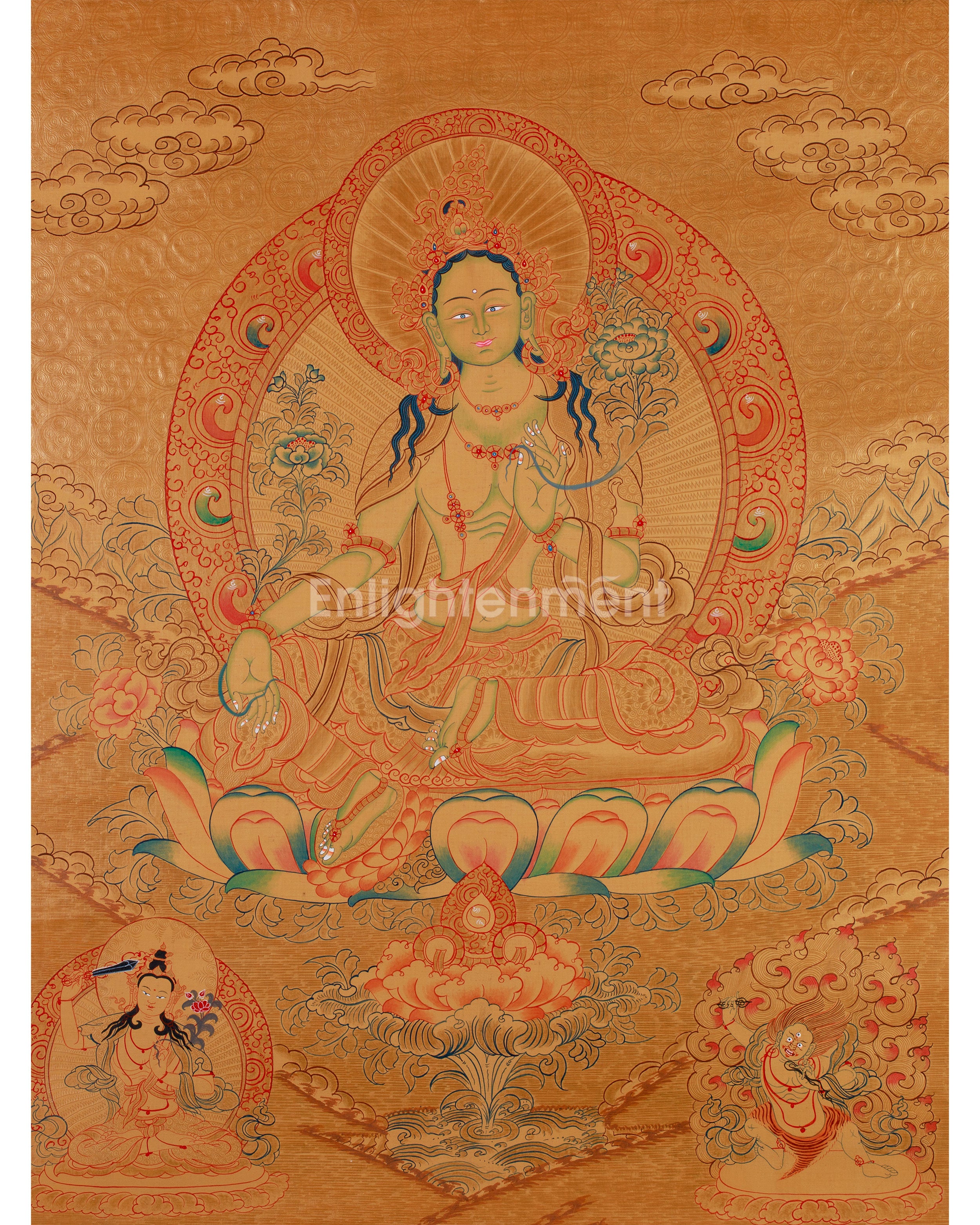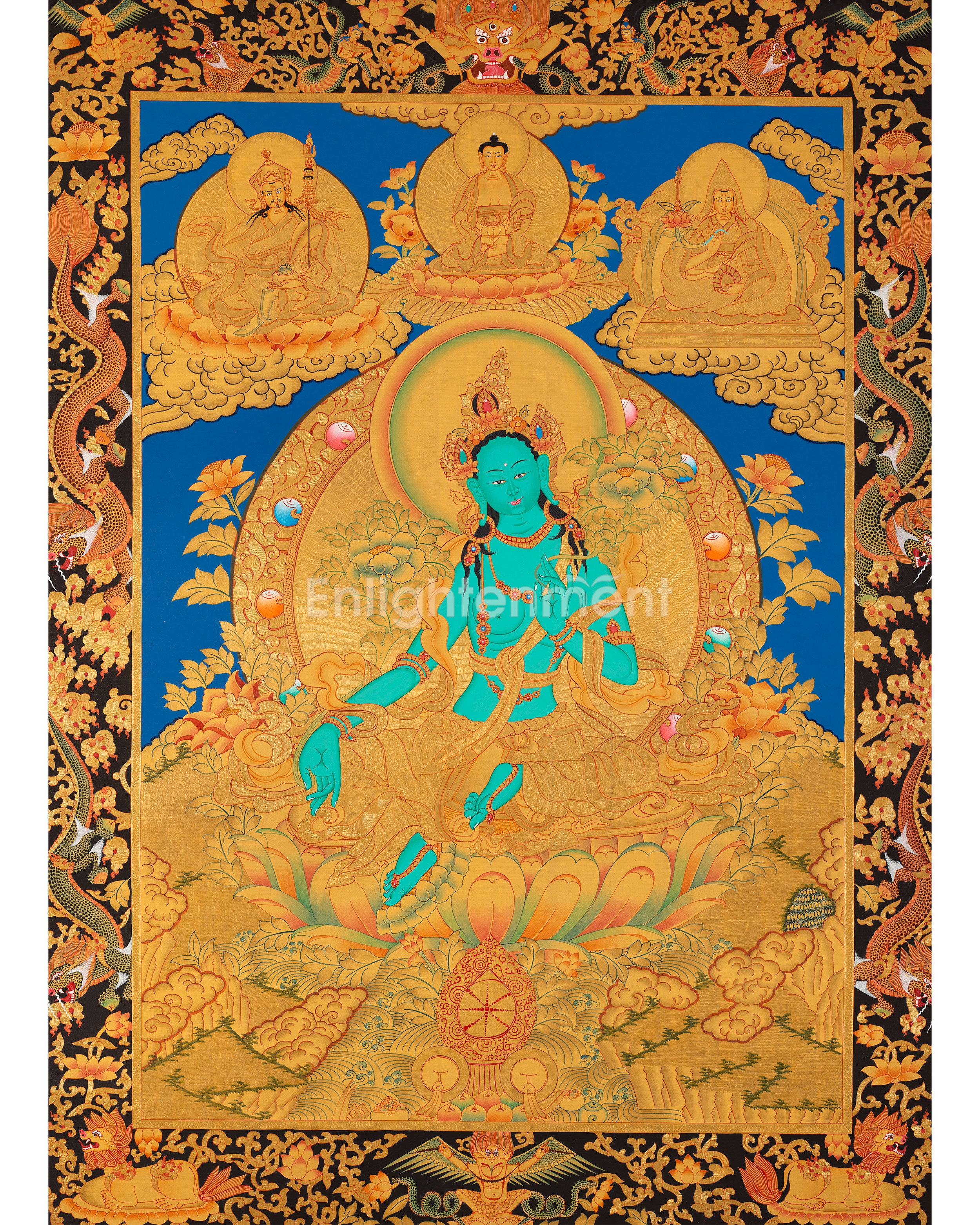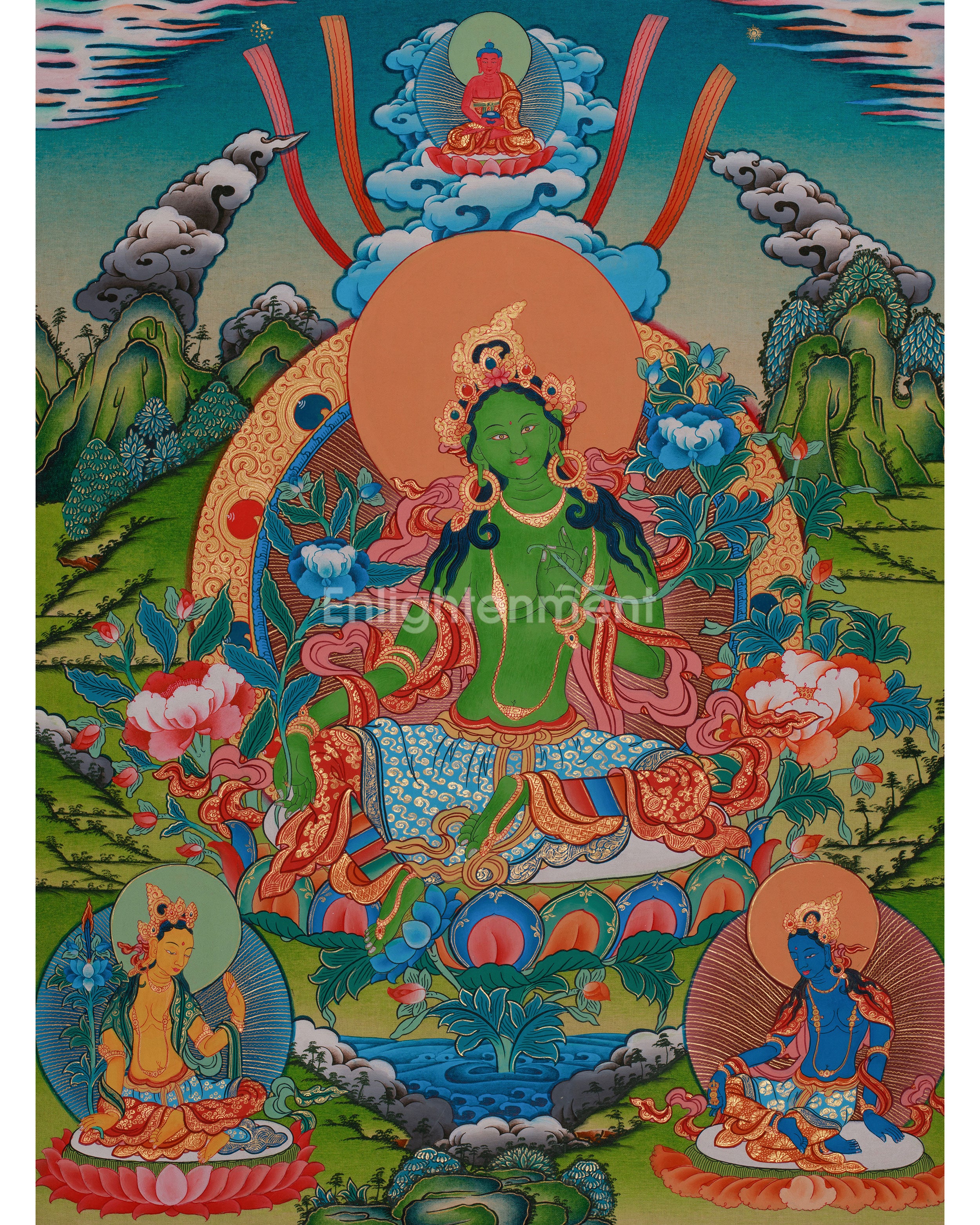Tara Thangka
208 products
Showing 49 - 72 of 208 products
Tara: The Mother of Compassion and Liberation
Tara, often called the "Mother of all Buddhas," holds a central place in Tibetan and Mahayana Buddhism. Her name, from Sanskrit, means "to cross," symbolizing her role as a guiding force to help practitioners navigate the ocean of samsara, the cycle of birth, death, and rebirth.
Tara, representing the feminine aspect of Buddhism, is revered as a Bodhisattva and, at times, as a fully enlightened Buddha. Her origins trace back to ancient folktales, one of which narrates her emergence from a tear of the Bodhisattva Avalokiteshvara, signifying her deep connection to compassion.
Attributes and Depictions
Tara assumes various forms, with White Tara and Green Tara being the most widely recognized. Green Tara embodies active compassion, depicted with one foot extended in a half-open lotus posture, poised for action. She holds a utpala flower a blue lotus, and makes a protective mudra gesture with her hand.
White Tara, associated with healing and longevity, is portrayed seated in a lotus position with eyes on her forehead, palms, and soles, symbolizing her vigilance and omniscience. She makes a protective gesture while cradling a blossoming white lotus. Both forms of Tara bear a third eye on their foreheads, representing wisdom.
Stories and Beliefs
Numerous narratives emphasize Tara's compassion and unwavering commitment to assisting sentient beings. In one myth, she vowed to aid beings until the end of samsara and pledged to manifest as a female to challenge the notion that it might be easier to do so in a male form.
In another tale, Tara is described as promptly responding to distressed individuals, such as those navigating perilous waters or confronting dangerous creatures when they call upon her. Tara's twenty-one manifestations, characterized by unique colors and qualities, address the concerns and challenges practitioners encounter, highlighting her multifaceted role in guidance and protection. Buddhists routinely recite the "21 Praises to Tara" to invoke her blessings and guidance.
Tara serves as a wellspring of boundless wisdom and compassion, serving as a beacon of hope for countless practitioners. Her embodiment of the feminine defies societal norms and underscores the vital roles women play in the spiritual realm. Tara, the Mother of Liberation, shields those who seek her guidance from the myriad tribulations of samsara, gently guiding them toward the shores of enlightenment.
